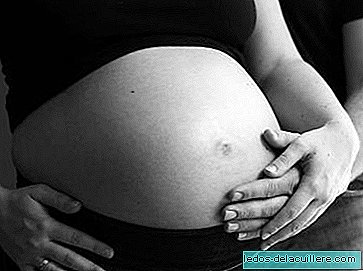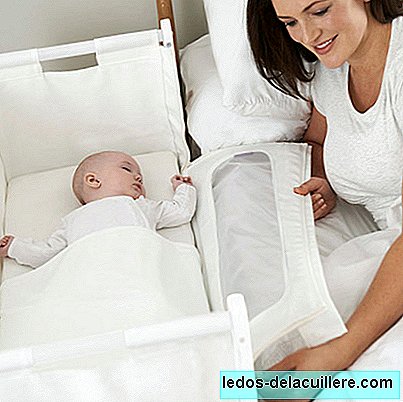
The Friendly Institutions for Women and Children, IAMI, are institutions that support breastfeeding, which offer comprehensive care to mothers, girls and boys and that improve the quality of care provided to them.
They emphasize, not only in healthcare but also in the relationship with patients, in close proximity to them. How many times have we complained about a cold, distant treatment and misunderstanding in hospitals or medical centers ...
The initial purpose of this Initiative was to recover the practice of breastfeeding as a child survival strategy, due to its content in immune factors that protect the child from the most frequent diseases, especially in maternity and newborn care medical services . But he wants to go further.
This is a proposal that emerges in Colombia as an extension of the initiative of the Amigos de los Niños Hospitals and that supports, among others, the ten steps towards a happy breastfeeding, the Rights of the Childhood and an upbringing and care with attachment .
Because with the foundations on which the IAMI Initiative is based, what is finally intended is to favor the emotional bond of the new being with its parents and its environment.
Currently in the world many institutions that provide health services to mothers and children are working to become IAMI. For this they have to develop a methodology that allows health personnel to provide a comprehensive service with quality and warmth.
These are the Ten steps to become Friendship Institutions for Women and Children, some criteria that we can consult extensively in a document prepared by UNICEF and the Colombian Ministry of Social Protection:
- Have an institutional policy in favor of comprehensive care for mothers, girls and boys.
- Train all health personnel on how to implement this policy.
- Educate and guide pregnant women and their families in all aspects of pregnancy and childbirth.
- Offer the possibility of a delivery attended with quality, without unnecessary medical interventions in an environment of intimacy and respect, favoring the presence of the partner, husband or a loved one for the mother.
- Provide practical and effective help to mothers in the immediate postpartum period so that they can put into practice breastfeeding and newborn care.
- Promote exclusive breastfeeding without schedules. Do not provide breastfed children with pacifiers or bottles and comply with the International Code of Marketing of Breast-milk Substitutes and the national standards that adopt it.
- To procure permanent mother-child contact during the hospital stay.
- Provide comprehensive care to girls and boys under six years of age, ensuring dynamic monitoring of growth and development, timely intervention of the alterations detected and guidance to mothers and their families on food and health care.
- Guarantee protective environments and friendly spaces in which the rights to health, food and nutrition, information, education, non-discrimination, participation and dignified treatment are respected, based on the recognition of the users of services as subjects of rights that oblige institutions to comply with them.
- Design strategies and mechanisms of community and institutional support for families, which ensure the continuity of the actions carried out in the institutions providing health and the support groups offered at home and in the community, in order to promote health and promote Early child development and comprehensive care of girls and boys from pregnancy to six years.
The history of the IAMI begins in Colombia in 1991 with the National Plan for Breastfeeding, formulated in response to the commitments made by the country at the World Summit of Children.
At present, the IAMI intends to become a tool for guarantee the rights of mothers and children, among them the right to the highest level of food and nutrition, as well as to improve the quality of care offered to them in health centers.
As UNICEF notes, it seeks
ensure that girls, boys and women have a good diet and health care throughout their lives starting from pregnancy and childbirth, since the well-being of boys and girls is inseparable from that of their mothers, offer Children the best start in life to survive and develop, which allows to lay the foundations for the fulfillment of all their other rights.
Currently in Colombia there are 120 health centers recognized as IAMI. Hopefully the number of these Women and Child Friendly Institutions will continue to grow and above all, that more and more sectors of society realize the importance of the points that support this and other respectful initiatives with children and their families.












